Effective and smart communication is essential to every successful company. When it comes to business communication, more adaptable, economical, and technologically advanced options are replacing traditional phone systems.
VoIP (Voice over Internet Protocol) is among the most revolutionary inventions. VoIP has changed how businesses communicate both internally and externally by sending calls over the internet rather than over conventional phone lines. Understanding what VoIP is and how it operates is crucial for making informed communication decisions, whether you’re a large corporation seeking scalability or a small business seeking cost savings.
Introduction: Understanding VoIP and Its Importance
To truly grasp the role of Voice over Internet Protocol (VoIP) in modern business, it’s important to understand not only its definition but also why it has become indispensable. At its simplest, VoIP is the technology that allows voice communication to be carried over the internet instead of traditional phone lines. But beyond this technical VoIP definition, the importance lies in how it empowers organizations to communicate faster, smarter, and more cost-effectively.
In a global business landscape where teams are distributed, customer expectations are higher, and agility is key, VoIP serves as a foundational tool. A well-implemented VoIP communication system ensures that employees can stay connected whether they are at the office, working remotely, or traveling.
Ultimately, VoIP is not just about replacing outdated phone systems. With secure networks, reliable providers, and integration into broader UCaaS platforms, VoIP has become a critical driver of productivity and growth.
How VoIP Works: Basics of Internet-Based Calling
It is helpful to understand the innermost components of Voice over Internet Protocol (VoIP) in order to appreciate its full potential. VoIP uses the internet to send voice as digital data, in contrast to traditional phone systems that depend on copper cables and in-person interactions.
Although it may seem complicated, this process occurs very immediately, which is why VoIP has grown to be such a dependable and affordable communication tool for companies all over the world.
1) Voice Signal Conversion
The analog sound waves of a user’s voice are transformed into digital signals when they speak into a VoIP-enabled device, such as a laptop microphone, VoIP desk phone, or softphone software. Codecs (compression/decompression algorithms) manage this step, making sure the speech is effectively compressed without sacrificing quality.
2) Data Packetization
After that, the digital signals are divided into little data packets. In order to guarantee that everything is correctly rebuilt on the other end, each packet contains a portion of the discussion in addition to specifics like the destination address and sequencing information.
3) Transmission over the Internet
The Internet Protocol (IP) system, which transports your emails, streaming movies, and files, is used by these packets to move over the Internet. VoIP uses packet-switching, which distributes packets most efficiently, as opposed to dedicated circuits like classical telephony. VoIP becomes more economical and adaptable as a result.
4) Receiving and Reconstruction
The data packets are reassembled in the proper order once they arrive at the recipient’s device. The other person may then hear the chat in real time when the technology transforms them back into voice signals.
5) Continuous Two-Way Flow
When the network environment is safe and optimized, this procedure takes place concurrently in both directions, guaranteeing smooth, natural talks with no latency.
Types of VoIP Services
Not every business has the same communication needs, and providers offer various models to fit organizations of all sizes. By recognizing the different service types, you can make an informed decision when choosing the right Business VoIP Service Provider or UCaaS provider.
1) Residential VoIP
Residential VoIP services are designed primarily for home users. They allow individuals to replace traditional landline phones with VoIP-based calling solutions. These services often include low-cost international calling, caller ID, call waiting, and voicemail features.
2) Business VoIP Services
Business VoIP is tailored for organizations that require scalable, secure, and feature-rich communication systems. A Business VoIP Service Provider offers solutions that go beyond voice calling. This includes integrating video conferencing, messaging, call routing, CRM integrations, and collaboration tools. Businesses can choose between cloud-hosted VoIP or on-premises VoIP systems depending on their infrastructure and compliance needs.
3) Hosted VoIP (Cloud VoIP)
Hosted or cloud-based VoIP means the entire phone system is managed by the service provider. Companies don’t need to maintain servers or complex hardware; instead, the provider hosts the infrastructure in the cloud. This model reduces IT overhead, ensures automatic updates, and allows easy scalability.
4) On-Premises VoIP
In an on-premises VoIP system, the business owns and maintains the hardware, servers, and infrastructure required to operate VoIP. While this involves higher upfront costs and ongoing IT management, it offers greater control, customization, and data security. This is especially important for industries with strict compliance requirements.
5) Unified Communications as a Service (UCaaS)
The Best UCaaS Providers often provide VoIP as part of a wider UCaaS platform. VoIP voice calling is combined with cloud-based video conferencing, instant messaging, file sharing, and collaboration capabilities through UCaaS.
Key Features of VoIP Systems
The wide range of functions that VoIP offers, which goes beyond the capabilities of traditional phone systems, is one of the primary reasons why organizations are switching to VoIP. Modern VoIP systems are made to do more than simply make calls; they are made to build a whole digital communication ecosystem.

Here are some of the most impactful features of a VoIP communication system:
- High-Quality Voice Calling – Advanced codecs and optimized bandwidth usage ensure clear, reliable voice quality when the network environment is secure.
- Video Conferencing – Integrated video calls allow teams and clients to connect face-to-face, improving collaboration and decision-making.
- Multi-Device Support – Calls can be made and received on desk phones, mobile devices, laptops, or even web browsers, giving employees freedom and mobility.
- Voicemail-to-Email & Transcription – Voicemails are automatically sent to email inboxes or converted into text, ensuring no important message is missed.
- Scalability & User Management – Adding or removing users is simple and requires no new hardware or wiring.
- Security Features – Encryption, firewalls, and advanced monitoring help ensure data privacy and communication integrity.
Benefits of Using VoIP
1) Significant Cost Savings
High setup, maintenance, and international calling expenses are associated with traditional telephone networks. VoIP offers flat monthly costs for unlimited calling, and calls, particularly long-distance calls, are significantly less expensive. Companies save money up front and over time.
2) Flexibility and Mobility
Since remote and hybrid work are becoming prevalent, employees require portable equipment. VoIP enables employees, whether they are at home, in the office, or traveling overseas, to make and receive business calls from any internet-connected device.
3) Improved Productivity
Workflows are more effective when VoIP can be integrated with corporate apps and collaboration platforms. Teams can concentrate on what really matters – serving customers – by reducing manual processes with features like call recording, analytics, and CRM connection.
4) Scalability for Growing Businesses
It costs a lot of money and new gear to expand a typical phone system. On the contrary, VoIP easily expands with your company. You can add a new user at any time.
5) Enhanced Customer Experience
VoIP guarantees that clients get through to the appropriate agent promptly and effectively by supporting sophisticated call management capabilities like IVR (Interactive Voice Response), call queues, and call forwarding. Businesses may provide a more timely service experience when voicemail-to-email and real-time help are combined.
Common VoIP Challenges and How to Overcome Them
While Voice over Internet Protocol (VoIP) delivers many benefits, it’s not without its challenges. The key is to recognize these issues early and partner with a trusted Business VoIP Service Provider who can put safeguards in place.
1) Call Quality and Reliability
One of the most common issues with VoIP is inconsistent call quality, which may present as echoes, dropped calls, or choppy audio. This usually stems from insufficient bandwidth, network congestion, or latency.
Solution: Ensure your business has a stable, high-speed internet connection with bandwidth dedicated to VoIP traffic. Implement Quality of Service (QoS) settings to prioritize voice data, and work with a good provider.
2) Power and Internet Dependency
Unlike traditional phones that operate on copper lines, VoIP relies on electricity and an active internet connection. This means power outages or internet downtime can disrupt communication.
Solution: You can mitigate this risk by using battery backups (UPS systems) and failover solutions. Many VoIP providers also offer mobile apps or call forwarding options, so calls can be routed to smartphones or other devices if the primary system goes down.
3) Security Risks
VoIP is vulnerable to cyberthreats, including eavesdropping, phishing, and denial-of-service (DoS) assaults, since it operates over the internet. Sensitive data and communications might be compromised in the absence of appropriate security.
Solution: Choose a provider who uses firewalls, intrusion detection systems, and encryption to guarantee the security of your network environment. Update VoIP software often, provide cybersecurity best practices training to staff, and implement robust authentication procedures.
4) Integration Complexities
Businesses often want to integrate VoIP with existing CRMs, ERPs, or collaboration platforms. However, compatibility issues can arise if the system isn’t chosen or configured properly.
Solution: For organizations seeking a broader solution, consider UCaaS (Unified Communications as a Service) from the best UCaaS providers, which combines VoIP with messaging, video, and collaboration in one platform.
From advanced features like voicemail-to-email and video conferencing to seamless integration with collaboration platforms, VoIP empowers businesses to stay competitive and efficient.
Voice over Internet Protocol (VoIP) has revolutionized the way organizations connect, offering far more than just a replacement for traditional phone lines. By transmitting voice over the internet, VoIP provides a cost-effective, flexible, and feature-rich communication system that supports today’s mobile and distributed workforce.
In a business world that demands speed, agility, and always-on connectivity, VoIP is more than a tool. It’s the foundation of smarter communication.
Whether you’re weighing VoIP vs. Microsoft Teams, exploring the different types of VoIP services, or searching for the best UCaaS provider, the key lies in choosing a partner like OmniCaaS.


Post a Comment